Are you in search of an outpatient alcohol rehab program but aren’t sure which one to choose?
Outpatient alcohol rehab programs can be a huge help on your road to recovery. And luckily, there are plenty of outpatient programs to choose from. However, finding the right one to meet your needs can be tough.
What do you need to consider before you decide? Read this guide to learn how to choose the right outpatient program to treat an alcohol use disorder.
What is Outpatient Alcohol Rehab?
Outpatient alcohol rehab is a treatment option for those struggling with substance abuse disorder. Most of these rehab programs are available to anyone with substance abuse issues, not just alcohol abuse.
The aim of these programs is always to help people achieve and maintain sobriety. However, they differ from inpatient programs, where participants stay overnight. With an outpatient alcohol rehab program, participants can still work and go to school, and they can schedule their treatments around their lives.
While some outpatient rehab programs are separate from inpatient ones, many outpatient programs occur within an inpatient facility. Sometimes, outpatient programs are a part of a hospital or mental health clinic.
Many of these programs offer evening and weekend sessions, making it easy for you to still maintain your regular life. Outpatient programs can also vary in terms of intensity. Some programs have participants coming in every day, while other ones have participants coming in a few times a week.
How to Choose Outpatient Alcohol Rehab Programs
Choosing an outpatient alcohol rehab program requires some research. As we mentioned above, there are many different options out there. Depending on where you live, you may have dozens of outpatient facilities in your area.
The best way to begin your search is to start by writing down a list of priorities of what is most important to you during treatment. This list may include:
- Types of amenities
- Therapies offered
- Ideal location
- Activities offered
- Ongoing sobriety maintenance resources
Here are some questions to think about while reviewing outpatient programs:
- What treatment methods does the program use? (For example, some programs offer group therapy, individual therapy, and medication assistance.)
- What is the program schedule? Can I choose between a half-day or a full day? Are nights and weekends available?
- What certifications and credentials do staff members have?
- Will my insurance cover the treatment facility? (We recommend speaking directly with your insurance provider for a list of options in your area.)
- How successful is the program? (While it’s hard to gather exact numbers, you can get a general idea of the success rate by speaking with staff members.)
- Can family members and friends participate in some therapy sessions? (Many outpatient programs offer family therapy.)
- What types of amenities and services are available? (Some outpatient clinics offer art classes, workout areas, walking paths, meditation classes, etc.)
- What will happen after rehab? (Ideally, you want to find a program that will set you up with another ongoing recovery program, such as AA.)
- Is there a daily program structure?
- How flexible can the program be with my schedule?
By asking some of these questions, you should get a better understanding of which treatment facility is right for you. If you find a treatment facility that you really like but isn’t covered by your insurance, make sure to inquire about payment options.
Some programs offer financial assistance or sliding scale payments to help offset the costs. You should also consider your ideal length of stay. Some people attend outpatient programs for a few months, while others go for a year. It all depends on the severity of your addiction and your progress toward sobriety.
What Services Do Outpatient Programs Offer?
As mentioned above, it’s important to take a look at the services an outpatient facility offers before you sign up. Some support services offered include:
- Medication assistance
- Individual, family, and group therapy
- Drug and alcohol education
- Other motivational and information sessions
- Medical care
- Ongoing recovery support groups, such as AA
- Recreational/occupational therapy
Behavioral counseling is also typically a part of an outpatient treatment plan. For example, many outpatient programs use cognitive behavioral therapy. This is a form of therapy where individuals develop behavioral tools to help them recognize and avoid situations that may lead to relapse.
Individuals will also learn stress management techniques and coping mechanisms for dealing with hard times. Additionally, many patients who struggle with substance abuse also struggle with a concurrent mental illness, such as anxiety or depression. The outpatient clinic can also help you treat these illnesses, which can help you get to the root cause of your substance abuse disorder.
Who is a Good Candidate for Outpatient Rehab?
Those who attend outpatient rehab have often already completed a more intense form of rehab, such as inpatient rehab and medical detox.
Additionally, those with less severe or less complicated substance abuse disorders may find that outpatient rehab is the right fit for them. You can speak with your primary care physician or an addiction therapist to determine what level of rehab is right for you.
Outpatient programs involve minimal oversight, and those who participate in them have a lot of independence in their recovery process. This can be great for those who already have somewhat of a handle on their addiction, but it may not be enough for those who are still really struggling.
Keep this in mind when choosing an outpatient facility.
Outpatient Alcohol Rehab Programs: Time to Decide
Now that you know more about outpatient alcohol rehab programs, it’s time to begin your search. Outpatient alcohol rehab programs are an excellent option for those looking to get sober while still maintaining their other responsibilities.
If you have any questions about outpatient alcohol rehab programs, contact us today!


